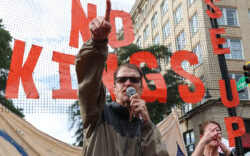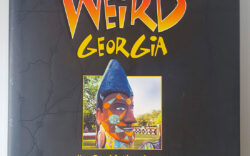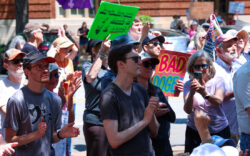Journalist and activist Barbara Ehrenreich died on Sept. 1 at age 81. A writer of books and magazine articles during a long career that began more than 50 years ago, Ehrenreich is most remembered for her 2001 book, Nickel and Dimed: On (Not) Getting By in America. In that book, she recounted experiences she had while working undercover in a series of low-paying blue collar jobs. Her story of working people struggling to make ends meet in precarious times was published two decades ago, but it is readable and relevant today.
Ehrenreich had a lifelong affinity for American laborers. “When I was born, my father was a copper miner in Butte, MT,” she recalled. “It was a hardcore, blue-collar situation.” The writer’s words should be remembered today by her readers and by her fellow journalists: “No matter that patriotism is too often the refuge of scoundrels. Dissent, rebellion and all-around hell-raising remain the true duty of patriots,” she said.
America has a long history of dissident, rebellious and hell-raising writers, and Ehrenreich was a part of that tradition. In 1906, President Theodore Roosevelt gave a speech to the U.S. Senate in which he scorned investigative journalists of the time as “muckrakers.” Most famous of the muckrakers was writer Upton Sinclair, whose novel The Jungle exposed the horrid conditions in America’s meatpacking industry. Published in 1906—the same year that Teddy Roosevelt denounced muckrakers from his presidential bully pulpit—the book led the president to push for needed reforms in this nation’s food industry. Sinclair’s book was a huge success, but the author had hoped that readers would sympathize with the plight of the slaughterhouse workers. Instead, readers worried more about contaminated food. “I aimed at the public’s heart, and by accident I hit it in the stomach,” he lamented.
Vance Packard was a needed journalistic voice in the America of the postwar 1950s and early 1960s. Packard questioned the complacency and materialism of this nation in such titillatingly-titled books as The Hidden Persuaders, The Status Seekers, The Waste Makers, The Pyramid Climbers and The Naked Society. A prolific and prescient writer until his death in 1996, Packard gave early warnings about the dangers of corporate power, pollution and threats to privacy posed by computers and surveillance cameras.
Jessica Mitford’s 1963 book, The American Way of Death, was a best-seller that ripped the lid off the U.S. funeral industry. In 1969 she wrote The Trial of Dr. Spock about the courtroom saga of the pediatrician and antiwar activist Benjamin Spock. She published The Prison Business in 1973. That same year, Nora Sayre penned a fine history of the glories and follies of the American left in Sixties Going on Seventies.
Molly Ivins combined hard-hitting commentary with a Texas-size sense of humor. Before her death in 2007, she skewered her fellow Texan, President George W. Bush, in columns that ran in more than 300 American newspapers and magazines.
Ben Bagdikian was a longtime journalist with The Washington Post until he died in 2016. “Never forget that your obligation is to the people,” he said. In his 1983 book The Media Monopoly, Bagdikian warned of the dangers of media ownership by a handful of powerful corporations. For his 1972 book The Shame of the Prisons, Bagdikian arranged to spend a few days inside a Pennsylvania prison while posing as a convicted criminal. Prison guards and inmates had no idea that the new kid on the cell block was in actuality a reporter who took high risks to get a story quite literally “from the inside.”
Barbara Ehrenreich lived and died long after the muckraking writers who exposed corporate corruption in the early years of the 20th century, but she carried on their brand of journalism for justice. In his 1972 book The Muckrakers, author Fred Cook asked questions that still need answers today: “Can America long survive as a democracy without its muckrakers? Can a society in which power becomes ever more concentrated in ever fewer hands survive in freedom without its watchdogs?”
Like what you just read? Support Flagpole by making a donation today. Every dollar you give helps fund our ongoing mission to provide Athens with quality, independent journalism.










